The Challenge:
NYK's maritime crisis management response was controlled by Tokyo HQ through a global contract with MTI Network, the world's leading crisis communications network, dedicated to serving the shipping, energy, offshore and transportation industries.
While this provided industry best practice support to Tokyo HQ through contracted support from local crisis management professionals for incidents across the globe, it failed to ensure that NYK had a suitable internal structure in Europe to support the global crisis response plan.
Additionally, the response expectations of the European media, especially in the UK, are very different to those in Japan and regional top management were concerned that should an incident occur in European waters, NYK's risk exposure was too great.
The Solution:
As regional Head of Group Communications, I developed and implemented a comprehensive training and evaluation package which involved not just top management, but line managers and reception staff.
The training plan was drawn up by the regional Group Communications team and endorsed by both Tokyo HQ and MTI Network. It involved three levels of training based upon the reasonable response expectations of staff:
- Level 1 - simply being prepared for incoming calls for all staff likely to receive calls, including PAs and reception staff.
- Level 2 - involved TV interviews and preparation for being “doorstepped” by news crews looking for comment, including sales and operational managers.
- Level 3 - for key top management executives, was a full day’s training by a BBC Panorama journalist including a series of televised interviews and simulated press conference.
The evaluation package was similarly divided into three parts:
- The initial package was a series of individual evaluations, conducted as part of the training which sought to identify those best suited to crisis response and who had potential to act publically on behalf of the company in the event of a crisis situation.
- The intermediate package was a table-top scenario involving local staff acting together to coordinate their response, with incoming calls from simulated media.
- The top level was a global exercise involving a simulated incident in European waters, necessitating full involvement by all relevant regional staff, supported by NYK ship management in Singapore and Tokyo HQ, with TV crews attending the London office and regional top management hosting a press conference to explain the situation and NYK’s subsequent actions.
Both the training and evaluation were subsequently incorporated into NYK’s HR practices, with a rolling training programme put in place to provide regular refresher training and ensure all new joiners and senior management changes were picked up and training given to those who had not experienced it previously.
Aside from the regional HQ in London, training packages were also conducted in major country offices in Hamburg and Rotterdam, where NYK planned to establish local incident response centres in the case of incidents in the Baltic and North Seas respectively.
The Achievement:
By implementing this structured approach to crisis response, NYK was able to successfully deal with a variety of incidents including fires at sea, NGO protests and radiation scares, such that each incident was handled effectively, minimising publicity and protecting NYK’s corporate reputation.
In each case, operations staff together with top management and Group Communications, quickly established the facts surrounding the incident, approved and published a rapid response.
Key Lesson Learnt:
When faced with a crisis, knowledge dispels fear. By carefully rehearsing likely scenario types, an organisation can prepare an effective framework to respond to any crisis. It is only when a crisis strikes that the precise response required can be decided. With thorough training the right team can be identified and obtain the right information to make the right call and carry out the right actions at the right time.
An illustration:
With a fire at sea, the incident can last for several days, as happened with the fire onboard the NYK ARGUS off the Algerian coast, while en route to Southampton. Once notified of the incident, the London team provided regular factual updates until the ship docked safely at Southampton. This satisfied the global information needs of thousands of customers and over fifty thousand NYK staff, the influential trade media and key industry stakeholders. One such stakeholder surprised NYK’s regional CEO at a subsequent industry leaders’ meeting by praising NYK’s response - not something he had expected nor experienced previously.


